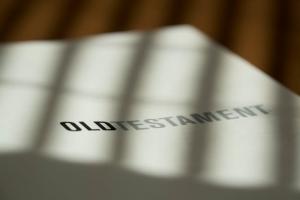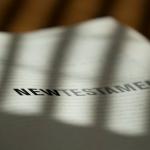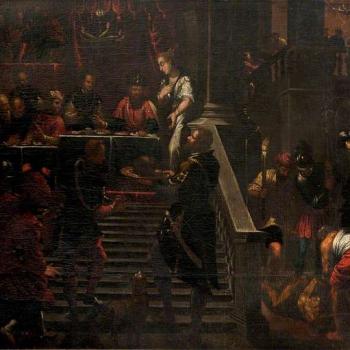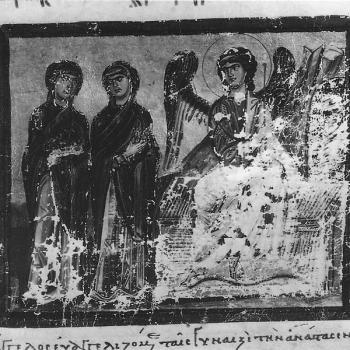Those in western culture are frequently familiar with Bible heroes, even if they are not churchgoing. Whether it’s the exploits of King David, the boldness of Peter, or the adventures of Abraham, most people are familiar with these Bible characters, at least in passing. Even in modern times, we’ve started speaking on female Bible figures, especially the women who served in ministry. Regardless, there are still many figures in Bible history – especially Bible leaders – that go overlooked. Here’s our look at five Old Testament leaders whose contributions are essential, but go unsung in many churches today.

Deborah
Deborah isn’t an unknown Old Testament leader, but she’s definitely overlooked. While many try to downplay her importance, there’s no denying a few things. For one, Deborah established structure and order when such wasn’t prevalent in Israel’s history. Additionally, Deborah is mentioned as the only female judge and also the only judge who was also a prophet. She’s also the only judge we see executing a judicial function. The Book of Judges has her call Barak, a chief military officer, to lead battle against the Canaanites. He refuses to go without her, and she accompanies him. Bark and his men kill all the major Canaanite leaders except Sisera, who is killed by Jael, a woman. Deborah (along with Jael) is praised for skill and battle in Judges 4 and 5.
“In the days of Shamgar son of Anath,
in the days of Jael, the highways were abandoned;
travelers took to winding paths.
Villagers in Israel would not fight;
they held back until I, Deborah, arose,
until I arose, a mother in Israel.” (Judges 5:6-7, NIV)
The song of Deborah is considered one of the oldest texts of the Bible, with possible dating around the 12th century B.C.
Aaron
Aaron is a Bible figure among Old Testament leaders who spent his life in his brother’s shadow (Moses was the major leadership figure of Israel at that time of history). However, Moses couldn’t have done much of his work without Aaron. For that reason, Aaron’s role as a prophet, the first high priest, and the first among the lineage of priests in Old Testament times is most vital.
Aaron was Moses’ elder biological brother. While Moses grew up as Egyptian royalty, Aaron and Miriam remained with his Hebrew parents. Even though Moses grew up very differently from his brother, he felt he was not a good speaker. When God first sent Moses to Pharaoh, he asked God to send someone else! In response, Aaron served as Moses’ assistant, serving as the spokesperson for essential matters before Pharaoh. He was one chosen to hold Moses’ arms as he held up the “rod of God” in battle, and it was his family chosen to serve as the first priests in the tabernacle.
Have Aaron your brother brought to you from among the Israelites, along with his sons Nadab and Abihu, Eleazar and Ithamar, so they may serve me as priests. Make sacred garments for your brother Aaron to give him dignity and honor. (Exodus 28:1-2, NIV)
Aaron’s family had the tools necessary to determine God’s will, distinguish between the clean and unclean, issue blessings, and teach the law to the Israelites.
Huldah
Some question the fundamental equality of roles between the sexes, especially in Old Testament times. It is true that women didn’t enjoy the same positions in the priesthood, nor among the general assembly of believers. When it came to the prophets, however, women served in the same esteem and function as men. An example of one such female prophet is Huldah.
Huldah was the wife of Shallum, who worked as “keeper of the wardrobe.” She lived in the Second District of Jerusalem. The story has it that during temple repairs under King Josiah, a scroll was found that contained “the covenant.” (What exactly was documented on the scroll is unknown, and of some debate). In questioning its authenticity, the scroll was brought to Huldah, who examined its contents and declared it authentic. This was the first act of declaring a writing authentic, or canon.
Hilkiah and those the king had sent with him went to speak to the prophet Huldah, who was the wife of Shallum son of Tokhath, the son of Hasrah, keeper of the wardrobe. She lived in Jerusalem, in the New Quarter.
She said to them, “This is what the Lord, the God of Israel, says: Tell the man who sent you to me, ‘This is what the Lord says: I am going to bring disaster on this place and its people—all the curses written in the book that has been read in the presence of the king of Judah. Because they have forsaken me and burned incense to other gods and aroused my anger by all that their hands have made, my anger will be poured out on this place and will not be quenched.” (2 Chronicles 34:22-25, NIV)
Gad
Contrary to what we might assume, there were prophets throughout Israel’s history that went both overlooked or unnamed. Gad is one such prophet. He served as one of David’s personal prophets along with the Prophet Nathan. We first meet him as he instructs David in a literal battle, calling him to return from Moab. Later, after David takes a census without divine approval, Gad offers David three different options for his punishment. David selects a plague, but God stops it. Gad then instructs David to build an altar for worship (in the threshing floor of Araunah the Jebusite) in response. In this final incident, Scripture tells us Gad encountered the angel of the Lord.
Then the angel of the Lord ordered Gad to tell David to go up and build an altar to the Lord on the threshing floor of Araunah the Jebusite. So David went up in obedience to the word that Gad had spoken in the name of the Lord. (1 Chronicles 21:18-19, NIV)
According to the Bible, there was a text known as the Words of Gad the Seer. Unfortunately, it is considered a lost text and we don’t have record of it today. Regardless, this unsung prophet vital among Old Testament leaders with an active ministry that was essential to David as he navigated his role in Israel’s history.
Baruch
There’s no question Jeremiah was essential among Old Testament leaders. He was a contemporary of the Prophetess Huldah and mentored by the Prophet Zephaniah, which displays his connection to the prophetic work in difficult days. His role as God’s mouthpiece during a tumultuous time in Israel’s (specifically, Judah’s) history earned him the nickname “the weeping prophet.” Through many trials, arrests, and unfair treatment among the people, Jeremiah’s work required a scribe when he was unable to deliver the message himself.
Jeremiah’s scribe was Baruch. Baruch would take Jeremiah’s dictation and then read his words in his absence. What many don’t know is Baruch was also a prophet himself! Mentored by Jeremiah, Baruch is credited with three different works: the Book of Baruch (part of the Deuterocanonicals), and the Apocalypses of Baruch, all of which are considered apocryphal (but were of great inspiration in the early church).
So Baruch son of Neriah went to them with the scroll in his hand. They said to him, “Sit down, please, and read it to us.”
So Baruch read it to them. When they heard all these words, they looked at each other in fear and said to Baruch, “We must report all these words to the king.” Then they asked Baruch, “Tell us, how did you come to write all this? Did Jeremiah dictate it?”
“Yes,” Baruch replied, “he dictated all these words to me, and I wrote them in ink on the scroll.”
Then the officials said to Baruch, “You and Jeremiah, go and hide. Don’t let anyone know where you are.” (Jeremiah 36:14b-19, NIV)
Summing it up
There are many Old Testament leaders we overlook in favor of ones that are more prominent. Minor figures, however, teach major messages – ones that greatly assist in our spiritual learning. Who is your favorite unsung Bible figure?














